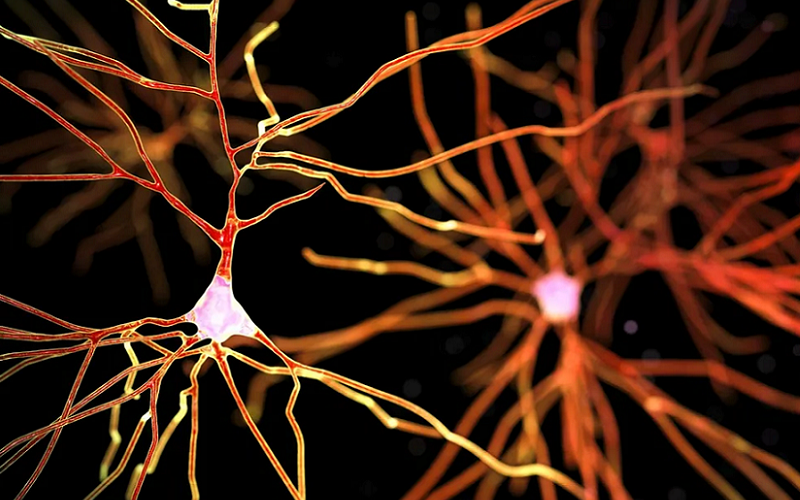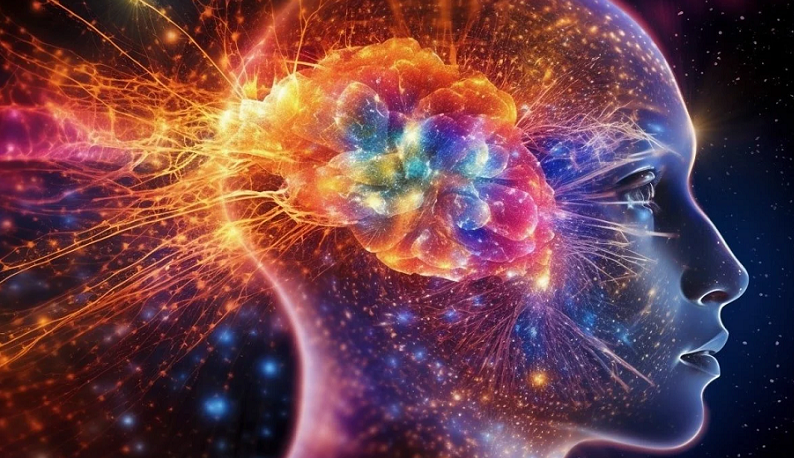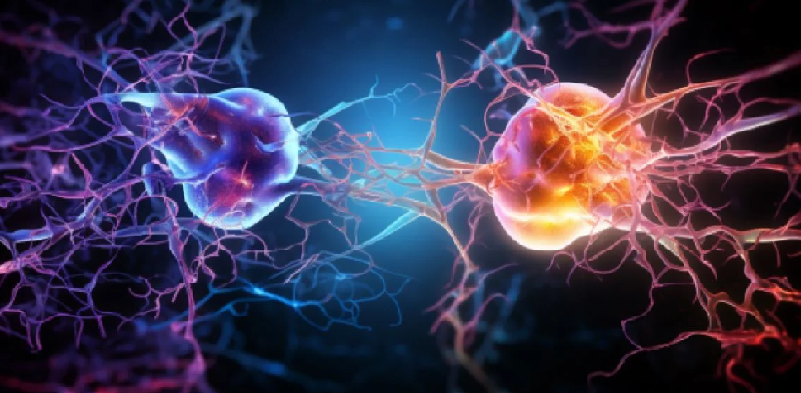
In the intricate symphony of the human brain, neurotransmitters play the role of maestros, guiding and shaping our thoughts, emotions, and behaviors. These chemical messengers, bustling across synapses, are pivotal in transmitting signals from one neuron to another, orchestrating a complex network of brain functions that define our very essence. Here we look into the fascinating world of these biochemicals, shedding light on their diverse roles and the profound effects they have on cognitive health and emotional well-being.
Contents
- Introduction to Neurotransmitter Diversity
- Basics of Brain Function and Neurotransmitter Roles
- Types of Neurotransmitters and Their Effects on the Brain
- Neurotransmitter Diversity and Brain Health
- References
Introduction to Neurotransmitter Diversity
The human brain, a marvel of evolution, functions as the command center for our entire being, influencing everything from our thoughts and emotions to our actions and reactions. At the heart of this complex organ’s operation are neurons, the basic units of the brain, communicating through a language of chemical signals known as neurotransmitters.
Definition of Neurons and Neurotransmitters
Before delving into the diversity of neurotransmitters, it is crucial to understand the basics. Neurons, or nerve cells, are the building blocks of the nervous system. They communicate with each other through electrical and chemical signals, forming networks that underpin all aspects of brain function. Neurotransmitters, the chemicals released by neurons, bridge the gap between cells, facilitating communication across synapses—the tiny spaces between neurons.
Overview of Neurotransmitter Diversity
Neurotransmitters vary widely in their structure, function, and effect on the brain. This diversity is not incidental; it is essential for the brain’s ability to perform a vast array of functions, from basic survival instincts like fear and hunger to complex processes like reasoning, memory, and emotion. Each neurotransmitter contributes uniquely to the brain’s overall performance, influencing how we think, feel, and behave.
Importance of Studying Neurotransmitter Impact on Brain Function
Understanding the impact of neurotransmitters on brain function is not just an academic pursuit; it has practical implications for mental health, neurological diseases, and everyday well-being. By exploring how different neurotransmitters work and interact, we can gain insights into the causes of various mental health disorders, develop targeted treatments, and even find ways to enhance cognitive function. This knowledge empowers us to not only address pathologies but also optimize brain health and performance, shedding light on the profound effects of neurotransmitter diversity on our lives.
Basics of Brain Function and Neurotransmitter Roles
The human brain, a complex network of billions of neurons, orchestrates everything from basic survival functions to the highest levels of thought and emotion. Understanding its operation requires a closer look at how neurons communicate through neurotransmitters, and how this communication underpins every aspect of brain function.
Structure and Function of the Brain
The brain’s structure is as complex as its functions, with various regions specialized for different tasks. This organization ensures efficient processing and response to internal and external stimuli, enabling everything from reflex actions to abstract thinking.
Overview of Brain Regions and Their Functions
The brain can be broadly divided into several regions, each with specific responsibilities. The cerebrum, the largest part, is responsible for cognitive functions such as thinking, memory, and decision-making. The cerebellum plays a crucial role in movement and coordination, while the brainstem controls essential life-sustaining functions like breathing and heart rate. The limbic system, encompassing structures such as the amygdala and hippocampus, regulates emotions and memory [1].
Role of Neurons in Brain Communication
Neurons communicate through electrical and chemical signals, sending messages across the brain and to the rest of the body. This communication network is crucial for coordinating complex processes, from motor functions to emotional responses. Neurotransmitters play a key role in this communication, acting as the chemical messengers that transmit signals between neurons.
Understanding Neurotransmitters
Neurotransmitters are the chemicals that neurons use to communicate with each other and with other cells in the body. Their role is fundamental in the transmission of signals across synapses, influencing how we think, feel, and act.
Definition and Types of Neurotransmitters
Neurotransmitters can be classified based on their function and effect on the receiving neuron. There are excitatory neurotransmitters, like glutamate, which promote the firing of neurons, and inhibitory neurotransmitters, like gamma-aminobutyric acid (GABA), which reduce neuronal activity. Some neurotransmitters, such as dopamine and serotonin, can have both excitatory and inhibitory effects depending on the type of receptors they bind to.
How Neurotransmitters Work: The Synaptic Transmission Process
The process of synaptic transmission begins when an electrical signal, or action potential, reaches the end of a neuron. This triggers the release of neurotransmitters into the synaptic cleft, the space between neurons. The neurotransmitters then bind to specific receptors on the post-synaptic neuron, causing either an excitatory or inhibitory response. Afterward, neurotransmitters are either broken down by enzymes, taken back into the pre-synaptic neuron through a process called reuptake, or bind to receptors again, ensuring that the message is passed on efficiently [2].

Types of Neurotransmitters and Their Effects on the Brain
Neurotransmitters, the brain’s chemical messengers, play pivotal roles in shaping our thoughts, emotions, and behaviors. Their diversity is key to the brain’s ability to perform a wide range of functions, from basic survival instincts to complex cognitive processes.
Excitatory Neurotransmitters
Excitatory neurotransmitters are the sparks that ignite neuronal activity, promoting communication across neurons and facilitating various brain functions, including learning, memory, and voluntary muscle movement.
Glutamate and Its Role in Cognitive Functions
Glutamate is the most abundant excitatory neurotransmitter in the vertebrate nervous system. It plays a crucial role in synaptic plasticity, which is the brain’s ability to strengthen or weaken synapses over time. This plasticity is essential for learning and memory. Too much glutamate, however, can lead to excitotoxicity, damaging neurons and contributing to neurological diseases.
Acetylcholine’s Impact on Learning and Memory
Acetylcholine is vital for many functions in the brain and body, including muscle contraction and heartbeat regulation. In the brain, it’s particularly important for attention, learning, and memory. Acetylcholine acts in areas of the brain involved in the encoding of new memories and is thought to modulate the brain’s response to stimuli, making it crucial for learning and attention processes.
Inhibitory Neurotransmitters
In contrast to excitatory neurotransmitters, inhibitory neurotransmitters serve to calm the brain, hindering excessive neuronal firing and ensuring that the brain’s activity remains balanced.
GABA and Its Role in Regulating Anxiety
Gamma-aminobutyric acid (GABA) is the primary inhibitory neurotransmitter in the brain. It plays a key role in reducing neuronal excitability throughout the nervous system. GABA’s effects are particularly important in the regulation of anxiety; lower levels of GABA are associated with increased anxiety and other mood disorders. Many anxiolytic drugs work by enhancing the effects of GABA, underscoring its importance in mood regulation [3].
Serotonin’s Influence on Mood and Sleep Patterns
Serotonin impacts a wide range of psychological and bodily functions, from mood and emotion to sleep and appetite regulation. It is often called the “feel-good” neurotransmitter because of its role in promoting well-being and happiness. Serotonin deficiencies have been linked to depression, anxiety, and sleep disorders, highlighting its crucial role in maintaining mental health.
Modulatory Neurotransmitters and Hormones
Modulatory neurotransmitters, sometimes referred to as neuromodulators, have a broad, system-wide effect on the brain, influencing many neurons at once and modulating the overall tone of brain activity.
Dopamine’s Role in Reward, Motivation, and Addiction
Dopamine is involved in reward, motivation, and pleasure. It’s critical for the brain’s reward system, reinforcing behaviors that are essential for survival and reproduction. Dysregulation of dopamine pathways can lead to addiction, as substances or behaviors that artificially increase dopamine levels can become compulsively sought after.
Norepinephrine’s Impact on Attention and Stress Response
Norepinephrine acts both as a hormone and a neurotransmitter. It’s crucial for the body’s fight or flight response, increasing heart rate, blood pressure, and blood sugar levels in response to stress. In the brain, norepinephrine affects attention and responding actions, making it essential for vigilance and the ability to focus attention.

Neurotransmitter Diversity and Brain Health
The balance and diversity of neurotransmitters in the brain are crucial for maintaining optimal brain health and function. This complex interplay between various chemical messengers is what allows the brain to perform its myriad functions smoothly and efficiently. An imbalance in these neurotransmitters, however, can lead to a range of mental health issues and neurological disorders.
The Balance of Neurotransmitter Systems
The human brain operates optimally when there is a precise balance between excitatory and inhibitory neurotransmitters. This balance is not static but dynamically adjusts to the brain’s needs, ensuring that neuronal activity is finely tuned for both mental and physical health.
Importance of Neurotransmitter Balance in Mental Health
A balanced neurotransmitter system is essential for mental health and well-being. Imbalances can lead to various mental health disorders. For example, too much or too little serotonin can contribute to depression and anxiety disorders, while imbalances in dopamine levels can affect motivation and pleasure, playing a role in addiction and schizophrenia. Understanding and correcting these imbalances through lifestyle changes, medication, or therapy can significantly improve mental health outcomes [4].
Consequences of Imbalances: From Depression to Neurodegeneration
Neurotransmitter imbalances are implicated in a wide range of diseases beyond mental health disorders, including neurodegenerative diseases like Parkinson’s and Alzheimer’s. In Parkinson’s disease, the loss of dopamine-producing cells leads to motor symptoms and cognitive decline. Alzheimer’s disease involves changes in acetylcholine and glutamate that contribute to memory loss and cognitive dysfunction. These examples underscore the critical role of neurotransmitter balance in preventing and managing neurodegenerative diseases.
Adaptive Mechanisms of the Brain
The brain has remarkable adaptive mechanisms that allow it to maintain neurotransmitter balance and function effectively even under stress or after injury. Neuroplasticity and neurotransmitter regulation are key aspects of this adaptability.
Neuroplasticity and Neurotransmitter Regulation
Neuroplasticity, the brain’s ability to reorganize itself by forming new neural connections, plays a vital role in its adaptive capacity. This process is influenced by neurotransmitters, which modulate synaptic strength and efficacy. Learning, memory formation, and recovery from brain injury all involve neuroplastic changes facilitated by neurotransmitter adjustments. For instance, practice and learning can enhance the efficiency of neurotransmitter release and receptor sensitivity, improving cognitive functions and compensating for lost capabilities [5].
How the Brain Compensates for Neurotransmitter Imbalances
The brain can compensate for neurotransmitter imbalances through various mechanisms, including increasing or decreasing the production of certain neurotransmitters, adjusting the sensitivity of receptors, and altering neurotransmitter reuptake processes.
These compensatory mechanisms can help stabilize mood, improve cognitive function, and restore balance to the brain’s chemistry. However, when these mechanisms are overwhelmed or dysfunctional, it can lead to the onset or worsening of mental health and neurological conditions, highlighting the importance of supporting brain health through diet, exercise, stress management, and, when necessary, therapeutic interventions.
References
[1] Neurotransmitters: What They Are, Functions & Types
[2] Mapping neurotransmitter systems to the structural and functional organization of the human neocortex
[3] The functional significance of neurotransmitter diversity
[4] Neurotransmitter diversity and its functional significance
[5] Neurotransmitter diversity and its role in integrative brain functions

